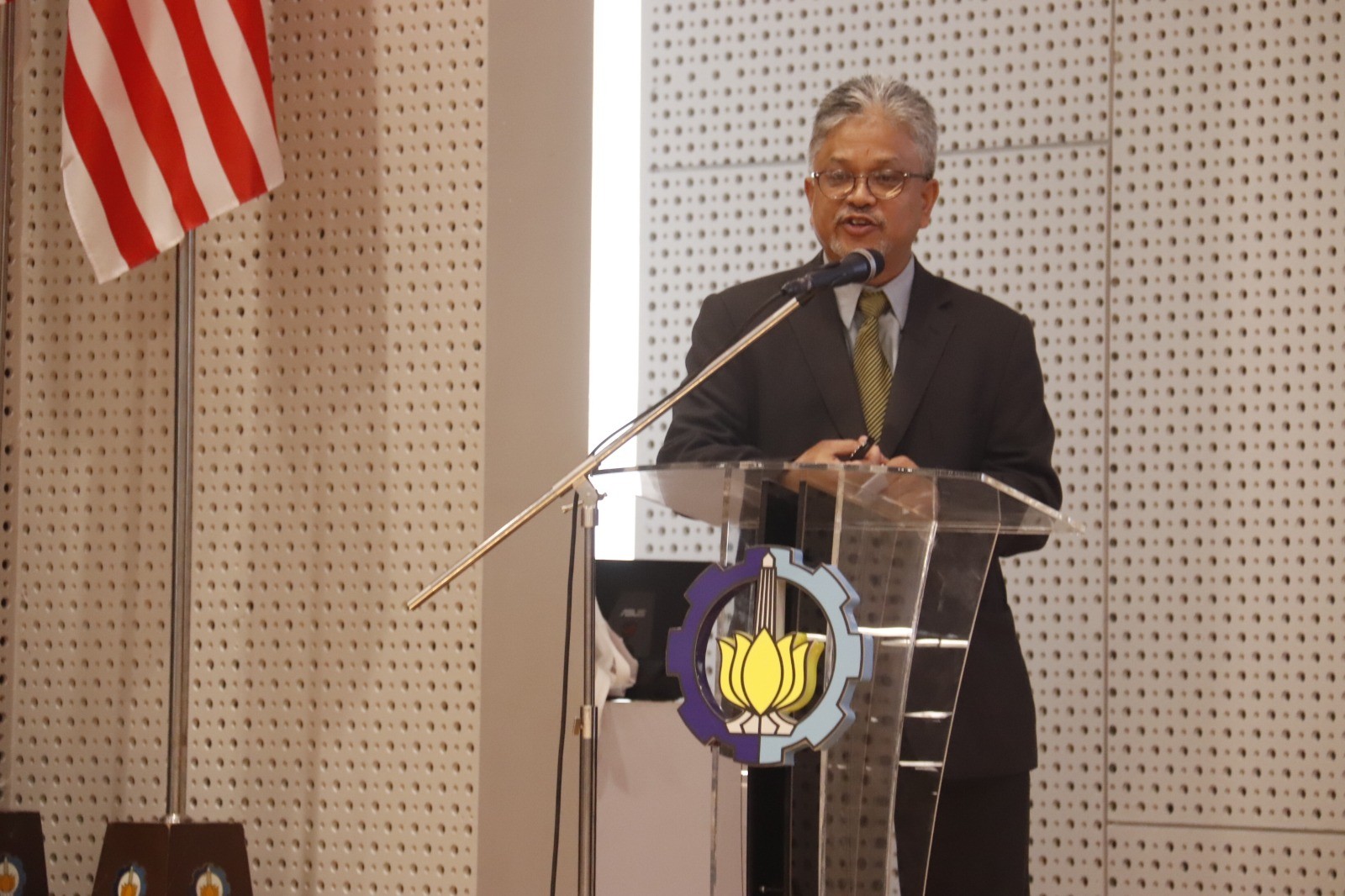Hydrogen as an Alternative to Renewable Energy

Prof Dr Arshad Bin Ahmad, The Director of the Institute of Future Energy UTM explained the results of his research related to the use of hydrogen as alternative renewable energy at IMRC 2018
ITS Campus, ITS News – Needs of energy increases as the population increases. as a result of cooperation between the Institut Teknologi Sepuluh Nopember (ITS) and Universiti Teknologi Malaysia (UTM), Indonesia – Malaysia Research Consortium (IMRC) 2018 invited the keynote speaker. It was Prof. Dr. Arshad Bin Ahmad, Director of the Institute of Future Energy UTM who explained the results of his research related to the use of hydrogen as an alternative renewable energy, Wednesday (11/21).
Arshad, who has long worked in the world of renewable energy research, sees hydrogen as something special. He explained, compared to 2000 and 2016 there was an increase in the amount of energy demand in the Southeast Asia region. “Indonesia is the highest followed by Thailand and an increase of 40 percent is dominated by transportation needs,” he explained.
The use of environmentally friendly bioenergy, he continued, actually increased from the infrastructure sector because many used the green architecture approach. “But still it is insufficient because there are not many users,” said the UTM Chemical Engineering lecturer.
Arshad predicts that in 2040 energy needs will increase by 60-70 percent. As a result, the world especially Southeast Asia has become unbalanced between its availability and energy needs. “Don’t let us become energy importers from other countries,” he said.
Therefore, he brought the idea of using hydrogen as an alternative to renewable energy. According to Arshad, hydrogen provides a solution to the problem of a limited energy-friendly environment. Hydrogen can be used as an energy source, energy storage, energy carrier, to infrastructure needs.
In addition, in the transmission process, there is often an energy loss of up to 30 percent. However, Arshad said, it’s a different case when the hydrogen is burned, because then what is produced is water. “So there is no greenhouse gas or carbon that can damage the environment,” he explained.
In the presence of IMRC 2018 participants, Arshad invited to prioritize the use of renewable energy and reduce the energy use of coal, oil, gas, and others. Campaigns like this, he continued, are very common in Europe. Each house has a solar panel, so they do not need to pay for energy needs for their daily activities. “In fact, they are paid as net exporters, although not much,” he said.
To actualize this, said Arshad, instructors are needed according to the requirements of renewable energy. Emerging problems such as land acquisition and compensation costs must be addressed by the relevant parties. “We can’t increase our existing energy sources, but try exploring other alternatives. Optimize well, if successful, it will be very good,” he said. (owi)
Related News
-
Support from Various Parties Accompanies the Construction of the New ITS Medics Building
ITS Campus, ITS News — The Faculty of Medicine and Health (Medics) of Institut Teknologi Sepuluh Nopember (ITS) continues
November 23, 2018 12:11 -
ITS Builds Faculty of Medicine and Health Building to Produce Quality Doctors
ITS Campus, ITS News — In order to provide quality education and learning facilities in producing quality medical personnel
November 23, 2018 12:11 -
Antasena ITS Successfully Wins Champion Title at SEM 2025
ITS Campus, ITS News — The Institut Teknologi Sepuluh Nopember (ITS) automotive team has once again proves its excellence
November 23, 2018 12:11 -
Successfully Scoring a Hattrick, Sapuangin ITS Wins Urban Concept ICE SEM 2025
ITS Campus, ITS News — The Sapuangin Team of Institut Teknologi Sepuluh Nopember (ITS) has once again made a
November 23, 2018 12:11
